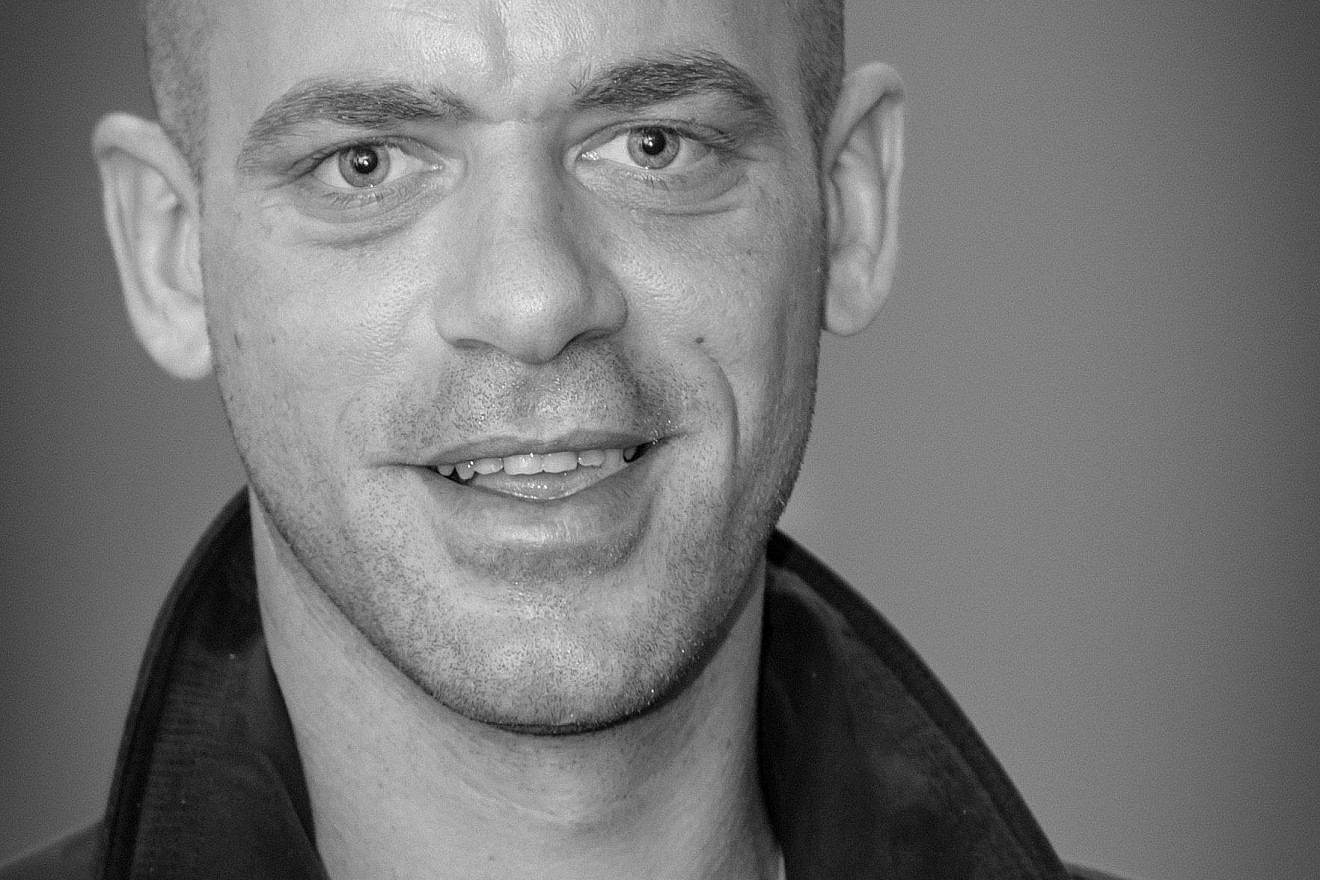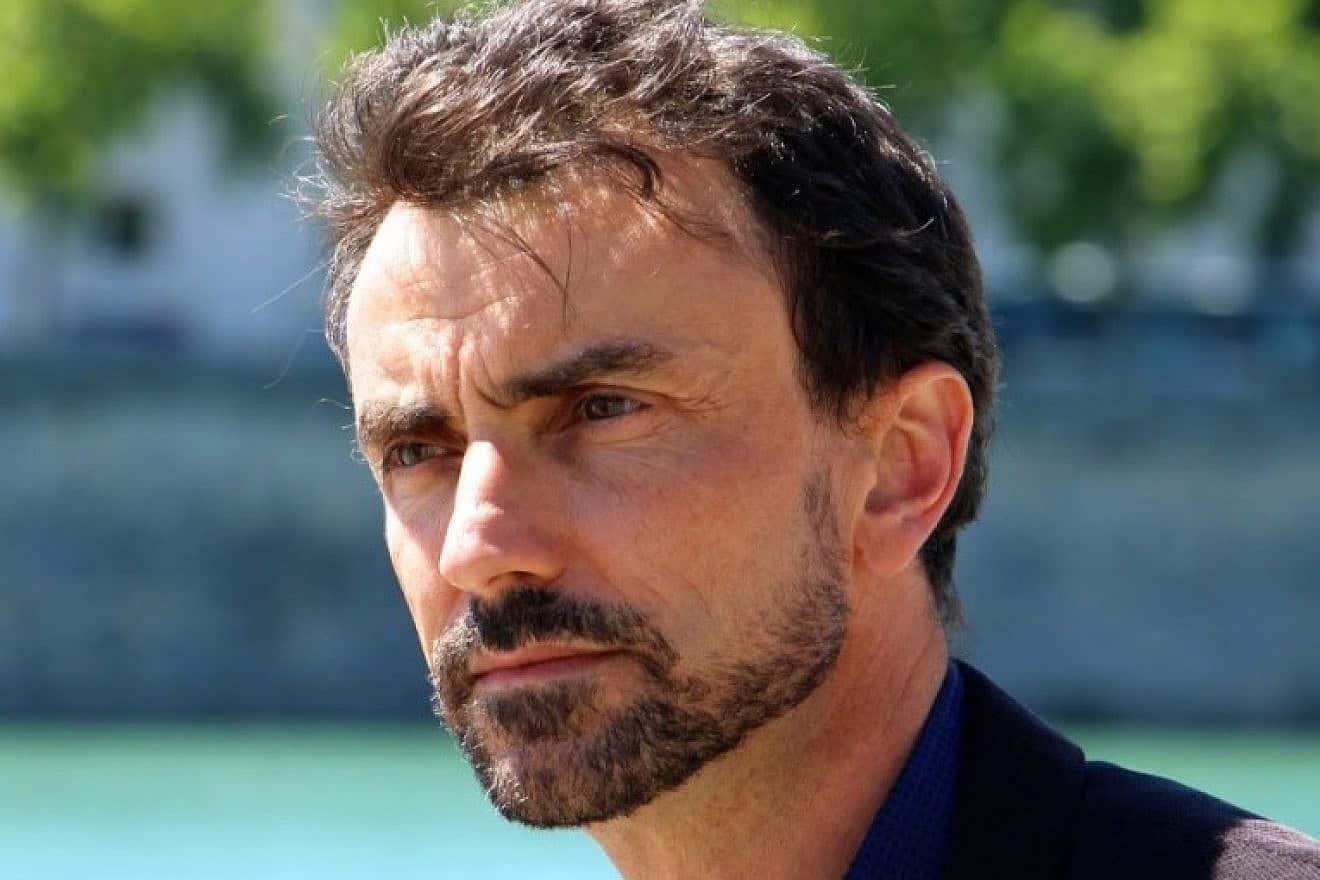First, a Palestinian-French lawyer, with ties to a terrorist group, was slated to speak in Lyon. Then the French city’s mayor canceled the conference. Following that, a judge intervened and reinstated it.
In the end, Salah Hamouri delivered his talk on June 22 at a conference titled “Palestine-Israel Colonization/Apartheid,” organized by the French BDS-affiliated group Collective 69.
Hamouri, who spoke on the same panel at the conference as Jean-Claude Samouiller, president of Amnesty International France, has ties to the Popular Front for the Liberation of Palestine, which Brussels and Washington designate a terrorist group.
He was convicted in 2005 of planning to murder Ovadia Yosef, then Israel’s Sephardic chief rabbi, and was released in 2011 as part of a prisoner exchange for the Israeli soldier Gilad Shalit, who was captured in 2006 in a cross-border raid and held by Hamas for five years.
“This is an act of cowardice in our judicial system,” Robert Ejnes, executive director of the Representative Council of French Jewish Institutions (CRIF), a World Jewish Congress affiliate, told JNS.
“This is a person who was involved in the attempted murder of a rabbi and is in contact with terrorist groups, which is illegal in Europe,” added Ejnes. “There are plenty of laws against antisemitism in France, but they are not being used.” (France has adopted the International Holocaust Remembrance Alliance (IHRA)’s working definition of antisemitism.)
Since arriving in France, Hamouri has toured and given lectures to citizens, activists and prisoners while denying Israel’s right to exist, incited violence and met with fellow PFLP terrorists. Several French towns have made him an honorary citizen.

Cancellation à deux
In 2022, Israel revoked Hamouri’s Jerusalem residency card and deported him to France that December.
Hamouri and other pro-Palestinian historians were slated to speak at a Feb. 1 conference marking the 30th anniversary of the Oslo Accords. “This was unacceptable for us,” Richard Zelmati, CRIF’s president for Auvergne-Rhône-Alpes, told JNS. “I told the mayor that he needed to invite Israelis to provide an opposite view and that Hamouri would be disinvited; otherwise, the Jewish community would protest.”
In late January, Lyon Mayor Grégory Doucet canceled the conference. On June 22, Hamouri was scheduled to speak at a different event at the Labor Exchange of Lyon, a city-owned venue, with the support of Amnesty International and the General Confederation of Labour.
Doucet sought to cancel that event as well, but lawyers, acting on Hamouri’s behalf, sued in court, and a judge, citing freedom of expression, ruled that the conference was back on.
It took place later that day, with the judge’s stipulation that there could be no antisemitic remarks. She differentiated the latter from anti-Israel comments, according to Zelmati.
Zelmati didn’t attend the conference, for fear of giving it publicity, but he sent a colleague to observe the proceedings. The latter saw some 200 attendees, mostly Communists and pro-Palestinian militants, according to Zelmati. Very few appeared to be Muslim. Hamouri was very careful to keep his remarks political and within legal bounds, Zelmati was told.

‘He knew exactly what he was doing’
Nicole Yardeni, deputy mayor of Toulouse and former president of CRIF in Toulouse, attended a May 16 conference in Toulouse that featured Hamouri. Attendees who recognized her told her to leave, but she was ultimately allowed to stay, she told JNS.
“The focus was supposed to be on Israeli jails, but, in reality, it was a celebration of Hamouri,” Yardeni told JNS. “When Hamouri appeared, everybody applauded. It was like a rock star and Jesus walking on water.”
Yardeni told JNS that Hamouri appeared to intentionally solicit controversy while remaining within the letter of the law.
“When he described his deportation by Israel, he used the words deporté instead of the proper word expulsé,” said Yardeni. “In French, deporté has an emotional resonance, which is akin to referring to how Jews were treated in Nazi death camps. He knew exactly what he was doing.”
During the question-and-answer period, she confronted Hamouri about his language and was removed from the conference, Yardeni told JNS.


























